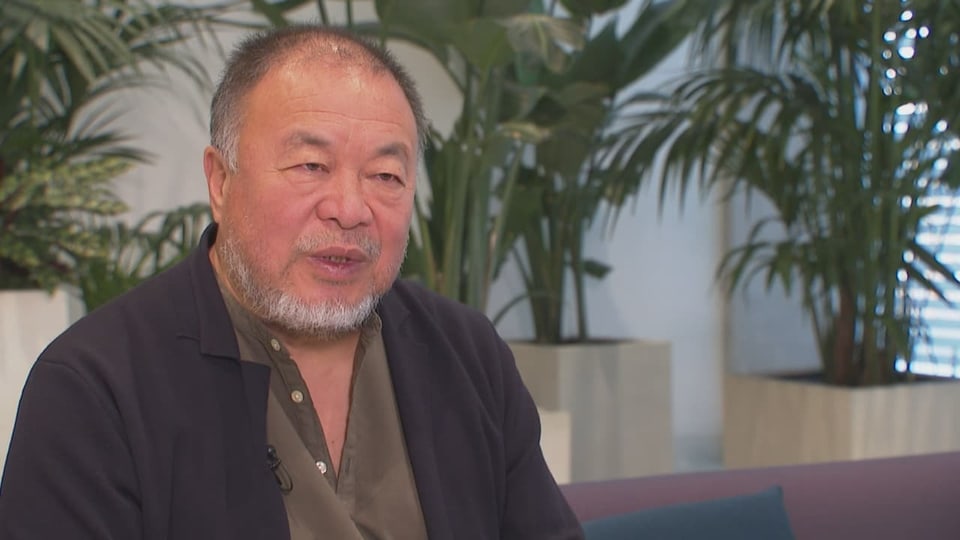He is internationally regarded as China’s social conscience and is never afraid to speak openly about his country’s regime. China’s Covid policy clearly shows how Chinese society works, says Ai Weiwei in an interview with SRF.
SRF: China has ended the zero-Covid policy, the corona cases have increased. Has the way people deal with Covid-19 changed?
Ai Weiwei: The Chinese way of dealing with the corona virus clearly shows how society works. Basically, it is a military police state where all orders from above must be strictly followed. The people pay a high price for this.
The government only survives because it has neither human rights nor a solid legal system.
In the beginning, the state had this fantasy of going “zero Covid”, which wasn’t a science-based decision – and at some point they knew they couldn’t control it anymore. So they opened everything that wasn’t well prepared. As a result, they have lost public respect. However, their dominion over the nation does not depend on the public, so it will not affect them.
In December there were some protests in China. Will there be more of these in the future?
There have been protests against the Covid restrictions. The young generation and women in particular have been arrested – they face imprisonment, which is ridiculous. And that because of minimal protests, holding up a piece of white paper. That is not tolerated in China. I don’t think there will be more protests if they keep arresting the leaders.
There is no way there will be a revolution in China.
So you see no chance of a revolution in China?
That’s impossible. There is no way there will be a revolution in China.
Do you think the government can change and do more for human rights?
I do not believe that. The government only survives because it has neither human rights nor a solid legal system. Not even protests can change that. The government has a party with almost a hundred million members – larger than any European nation. China will not change.

Legend:
Ai Weiwei doesn’t think there will be more protests in China as long as the leaders are arrested.
SRF
What can the West do?
The West feels the competition and is afraid in many ways. I don’t think the West can or will really do anything because the existing conditions in China are beneficial and profitable for the West. That’s the problem. After all, where do you find another nation with a single leader that isn’t a democracy and is willing to do business with the West – and has the largest labor and consumer market? In human history, this is an irresistible lure.
I think Switzerland should do business with China – China is not an enemy.
You recently said that Switzerland’s dealings with China are hypocritical. Do you still think so?
Switzerland is a country I love, I have a lot of friends here. But when it comes to politics, Switzerland is very hypocritical. Credit Suisse blocked my bank account. This is because I am a criminal, which the Communist Party accuses me of. Journalists have approached the bank about this, but they do not admit it. So if you have such a big financial system like Credit Suisse, which constantly lies and makes big mistakes – that represents Switzerland. It’s a pity that Switzerland has such companies.
What can Switzerland do better in dealing with China?
I don’t think Switzerland should change anything. Switzerland should have clear principles and moral values, that’s good for them. And I think she should do business with China – China is not an enemy. But Switzerland – such a stable, democratic society – should defend the values it has won.
The conversation was led by Stefanie Schunke.
